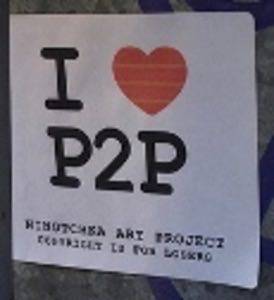A new study commissioned by the European Union has finally proven what many have suspected all along: internet users don’t want to pay for content. Period. And nothing is going to change their minds. The report finds, in a surprising contradiction to what industry executives have been spouting for ages, consumers’ behavior has nothing to do with the peer-to-peer technology (P2P) that has given rise to all-you-can-eat systems for free downloads of copyrighted content. In fact, many people claim that they wouldn’t pay for online content even if all other free options were taken away. This finding has dramatic implications for the future of business, and not just in the entertainment industry, either. If people won’t pay for content, how will companies survive?

The answer to this question is simple, but the actual solutions are hard. It’s clear that new business models are needed when it comes to online content, but what should these new models look like? How should they work? No one really seems to know yet.
Who Pays, Who Doesn’t
The European Commission’s Digital Competitiveness Report (PDF) is a comprehensive annual resource which looks at everything from broadband penetration to use of social networks and more. One of the chapters in the latest report, published earlier this month, deals specifically with online entertainment.

In this chapter, the EU study reports on the state of the online entertainment industry, revealing factoids like “less than 5% of Europeans have paid for online content in the last three months.”
The most interesting results from the report, though, are not the details about who pays, but about who doesn’t. Among the non-payers, factors like lower prices would convince about 30% to pay while things like better quality, wider choice, better availability, and others would convince between 15-20%. Yet one figure stands out: only around 20% of online users would pay for online content if all the other free options suddenly disappeared.
Peer-to-Peer File Sharing Not to Blame, Says EU
The impact of this finding didn’t escape the notice of the EU researchers, who go on to point out that this seems to mean, contrary to what industry execs say, illegal copying is not to blame:

“…the low percentage of individuals that consider the possible lack of freely available online content as a reason for paying, calls into question the argument put forward by representatives of the content industry that European consumers will in the long term suffer from a lack of commercial availability of high quality content if the current model of audiovisual content distribution, based on illegal copying, is not curved.”
Instead, what seems to be happening is that people pay for their internet connection and then gorge themselves on the abundant free content that’s available online. Because there’s so much out there which costs nothing at all – from web news to streaming video to software applications – internet users tend to balk at the idea of actually having to pull out their wallets to make a purchase. It’s the internet itself that has led us down this path to a place where old monetization models simply no longer apply.
What’s the Answer?
The report goes on to look at the business models of all sorts of content sites in detail including online news/newspapers, video, movies, music, and online games. While the ways consumers access these different types of content may vary (RSS for reading news, streaming videos, downloading music), the findings are relatively consistent across the board. With only a few exceptions (Apple’s iTunes Store, music-based games like Guitar Hero, etc.), many of the current business models are not sustainable.
So what’s the answer? There isn’t really a good one just yet. Many businesses try “freemium” models which convert power users to paying users. Other sites try sustaining themselves on online ads (which is difficult to do in a down economy). But the best ideas for new business models may very well be the ones that haven’t even been thought up yet. The only question is whether or not they’ll be discovered in time before more content-producing industries fail.
Image credits – used freely thanks to the Internet and Creative Commons: downloading, flickr user Arenamontanus; I love P2P, flickr user Brocco Lee; p2p logo, flickr user jatop










